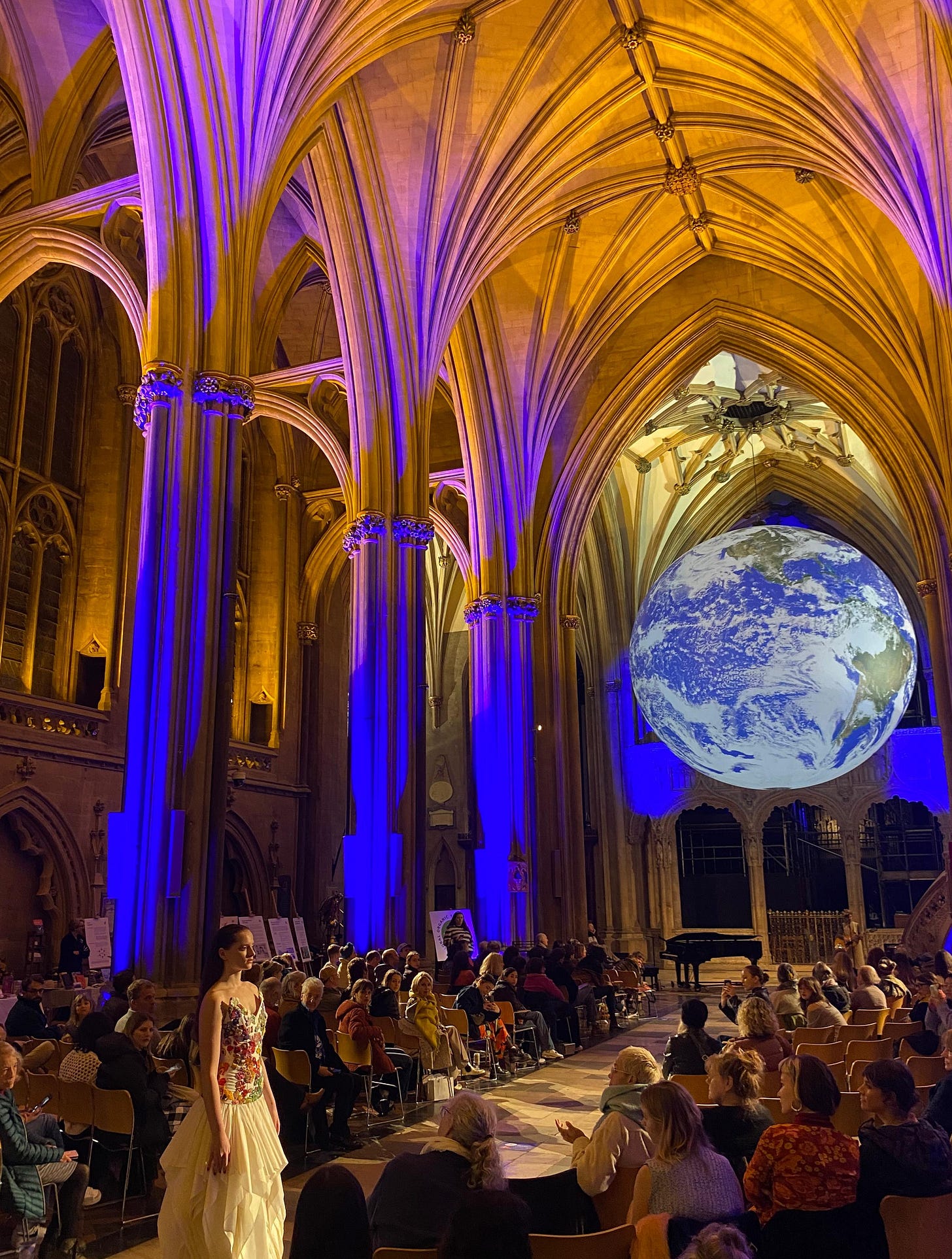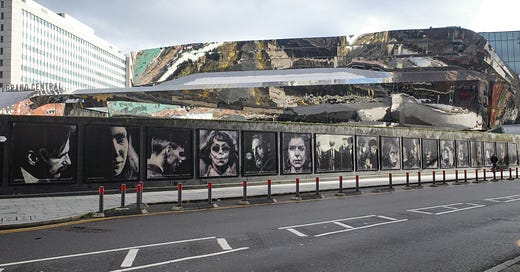Hello,
At our annual reception at the Houses of Parliament this week, our industry co-chair, Sir Peter Bazalgette (popularly known as ‘Baz’), announced that he and Baroness Shriti Vadera will be jointly leading a new taskforce working with the government on a new strategy for the creative sector.
This plan, to be published in the spring, will set out new policies and government interventions that will support the sector to deliver even greater economic growth, jobs, and opportunities.
Once the plan is delivered, Baz will step down from his CIC role and hand the reins to Baroness Vadera. As a former treasury advisor, government minister, and current chair of the Royal Shakespeare Company (RSC) and Prudential, she’s uniquely qualified to help us drive public and private investment in the creative sector.
We also heard from Minister for the Creative Industries, Chris Bryant, who paid tribute to Baz’s work over the past three years, saying: “I don’t think there can be anybody in this country who has embodied the creative industries more effectively and driven forward the agenda and stood up for it - often at times when it’s been difficult in the political landscape to do so - more than Baz has.”
Chris also highlighted three areas where he’d like to see more progress: increasing R&D in the sector, developing creative clusters in cities and towns around the country, and widening access to creative education. Watch the video to hear more.
Creative industries news
New research from the Creative Industries Policy and Evidence Centre explores the important role of foreign direct investment in the UK’s creative sector.
Games industry body Ukie has proposed a new GCSE in Digital Creativity.
The qualification would sit alongside the Computer Science GCSE, focusing on practical, in-demand skills in audio production, visual design, and game development.
Creative Industries Council members have shared their perspectives on devolution with Culture Commons as part of a project investigating the future of local cultural decision-making.
New research into class inequalities in the creative industries, conducted by The Sutton Trust, reveals that younger adults from working-class backgrounds are four times less likely to work in the creative industries than their middle-class peers.
Birmingham’s creative renaissance
Birmingham’s creative cluster is flourishing thanks to investment in film, TV and creative technology, helping to drive a wider regeneration of the city.
This week, AHRC announced funding for CreaTech Frontiers in the West Midlands, a new project led by Birmingham City University with Coventry University, the University of Birmingham, The University of Warwick and the RSC.
It’s one of two new UKRI investments in creative clusters - the other is Liverpool City Region’s MusicFutures, which will harness AI and XR and provide funding and training for musicians, educators and small businesses.
The Birmingham project will focus on developing the region’s micro, small and medium-sized businesses, specialising in research and exploration of creative technologies like video games, virtual production and immersive reality.
It will also work with industry partners to help them to develop new products and multi-platform content.
Meanwhile, the media and screen industries are helping to transform disused factories, warehouses and railway arches in Digbeth - once a hotspot for manufacturing in the city - into a thriving creative quarter.
The BBC is moving its Birmingham HQ to the former Typhoo Tea factory, which had stood empty for 40 years, part of an investment which will bring an estimated £282 million to the West Midlands by 2031.
Silent Witness will be filmed at the new creative content hub The Bond, while MasterChef will be produced in a former banana warehouse owned by Digbeth Loc Studios, established by Peaky Blinders creator Steven Knight. Knight’s drama for the BBC, This Town, was filmed in Digbeth earlier this year, and Netflix is currently shooting the Peaky Blinders film there. Steven Knight spoke about his vision for Digbeth at a Royal Television Society event last month.
Creative climate news

Arts Council England has published its annual sustainability report, which looks at the environmental impact of almost 600 funding recipients. The report, produced by Julie’s Bicycle, also showcases more than 50 examples of practical action taken by cultural organisations to address the climate crisis.
A free climate crisis ebook for UK primary schoolchildren features contributions from more than 80 writers, illustrators and activists, including Adam Kay, Mary Portas, Chris Packham and The Gruffalo illustrator Axel Scheffler.
UK start-up Alchemie Technology is developing the world’s first digital dyeing process for textile manufacturers, which could reduce water consumption by 95% compared to traditional methods.
The British Library recently installed the country’s largest solar heat installation on its rooftop, which is expected to reduce the building’s CO2 emissions by 55 tonnes yearly.
Sessions from the Design Council’s annual sustainability summit and the BBC’s Climate Creatives conference are now available on demand.
Opportunities
SXSW London. If you want to put yourself forward as a speaker at the first European edition of the iconic Texan cultural festival, be quick - applications close at midnight on 29 November. Applications to perform at the music festival or curate a showcase close on 13 January, while applications to show your short film or music video close on 31 January.
Arts For Impact. UK arts and culture charities can apply for a place in BigGive’s seven-day online match funding campaign. Apply by 18 December.
The Department for Business and Trade is running a series of trade missions over the coming months, including a UK delegation to the Kidscreen Summit in San Diego, USA, in February, a digital and immersive tech delegation to the RLC Global Forum in Saudi Arabia in February (apply by 18 December) and a trip to Expo 2025 in Japan in June for businesses in Greater Manchester (apply by 20 December).
Collaborative R&D: Creative Catalyst. UK businesses can apply to Innovate UK for a share of up to £2 million for projects that develop new innovative products and tools for the UK creative industry. Opens 9 December, apply by 29 January.
Events
3 December - Create for good: A creative impact investment showcase (Bristol): a celebration of purpose-led creative businesses from across the South West, featuring insightful discussions and a networking dinner.
4 December - A Class Act: Transforming socio-economic diversity in the creative industries (online): discussion of the recent Sutton Trust report, with panellists sharing their experiences of classism in the creative industries and ideas for transforming socio-economic diversity.
7 January 2025 - Narrating Creative Regions Half-Day Symposium (Southampton): exploring the pivotal role of strategic partnerships between higher education institutions and creative businesses in driving regional economic growth, fostering talent development, ensuring equitable access to the creative sector, placemaking and enhancing other value indicators.
2-7 June 2025 - SXSW London: early bird tickets are now on sale for the biggest live convergence of industries, art forms and innovation in Europe.
Until next time,
Rachel Wareing (Newsletter Editor) &Carlos Grande (Editor, thecreativeindustries.co.uk)





